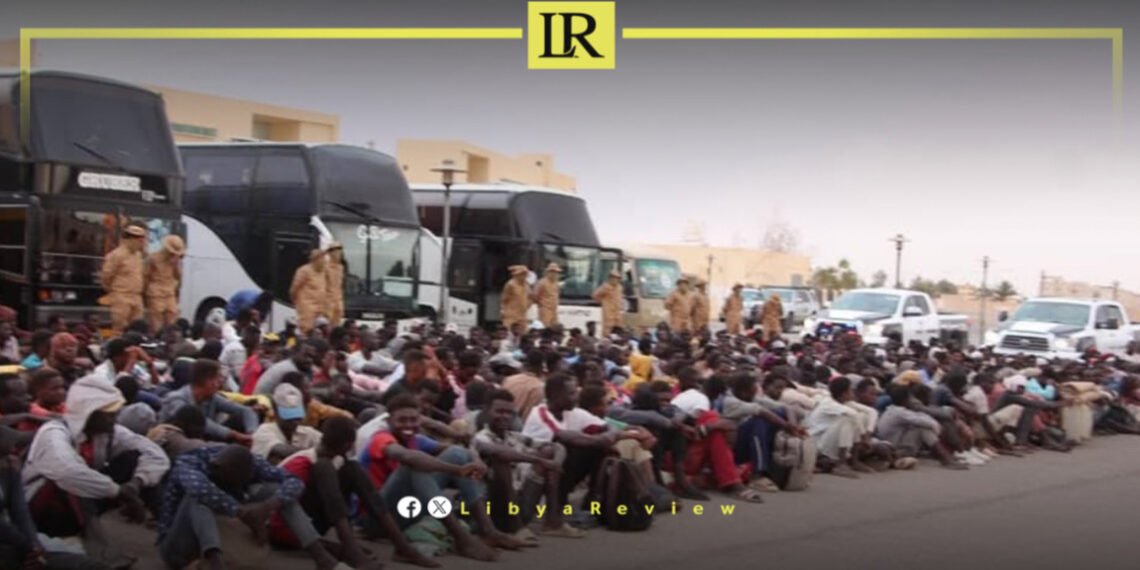The Joint Force of the Illegal Immigration Control Department in Jufra has transferred 500 Sudanese refugees to official shelter centers in Sirte, Ajdabiya, and Benghazi, according to an official statement from the department’s media office.
This operation, carried out in coordination with the Libyan Armed Forces and the General Directorate of Central Support, aims to provide temporary protection for individuals who fled Sudan due to ongoing conflict and dire humanitarian conditions.
The department stated that all relocated refugees were given essential humanitarian assistance, particularly as the transfer coincides with the approach of Eid Al-Adha.
Officials noted that the refugees had entered Libya irregularly, escaping violence and instability in Sudan. Authorities assured that the transfers were conducted with full respect for humanitarian principles and security protocols, and stressed that any further decisions about the refugees’ status will be made in accordance with national policies and regional developments.
The Illegal Immigration Control Department reaffirmed its continued efforts to manage irregular migration in line with both humanitarian considerations and national security requirements, especially for those displaced by conflict in neighboring countries.
Libya has been in chaos since a NATO-backed uprising toppled longtime leader Muammar Gaddafi in 2011. The county has for years been split between rival administrations.
Libya’s economy, heavily reliant on oil, has suffered due to the ongoing conflict. The instability has led to fluctuations in oil production and prices, impacting the global oil market and Libya’s economy.
The conflict has led to a significant humanitarian crisis in Libya, with thousands of people killed, and many more displaced. Migrants and refugees using Libya as a transit point to Europe have also faced dire conditions.
The planned elections for December 2021 were delayed due to disagreements over election laws and the eligibility of certain candidates. This delay has raised concerns about the feasibility of a peaceful political transition.
Despite the ceasefire, security remains a significant concern with sporadic fighting and the presence of mercenaries and foreign fighters. The unification of the military and the removal of foreign forces are crucial challenges.


